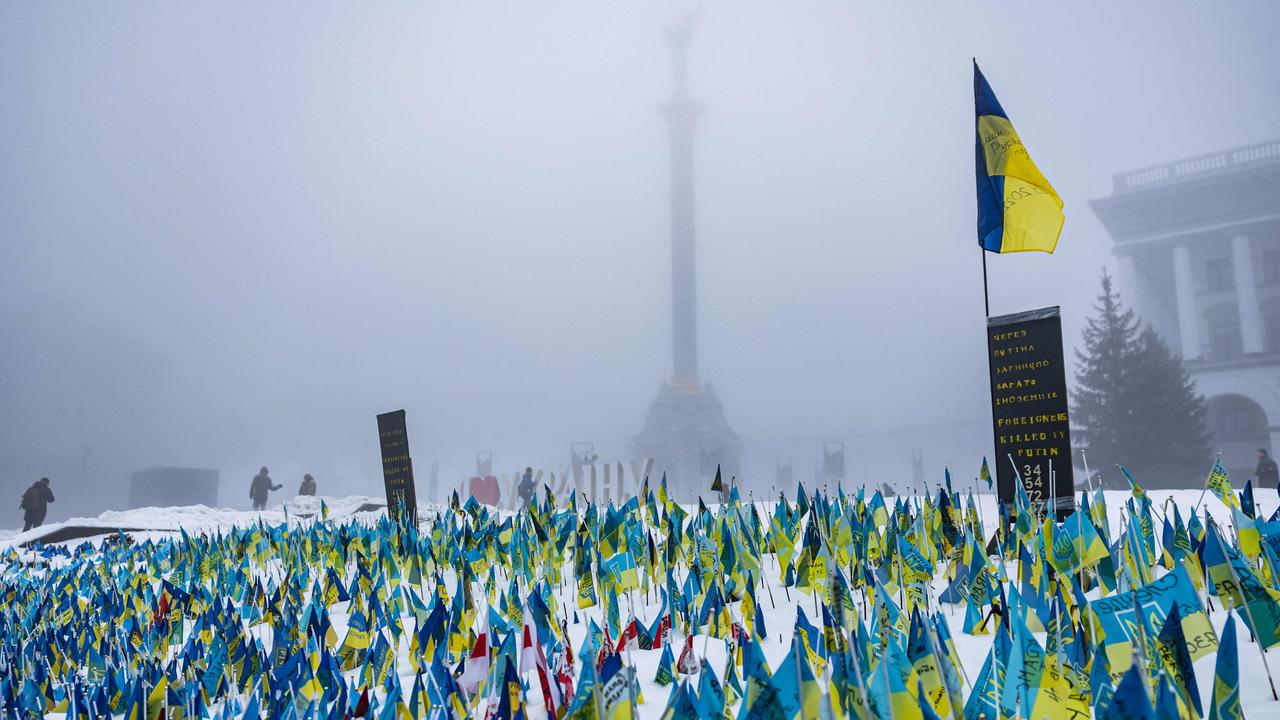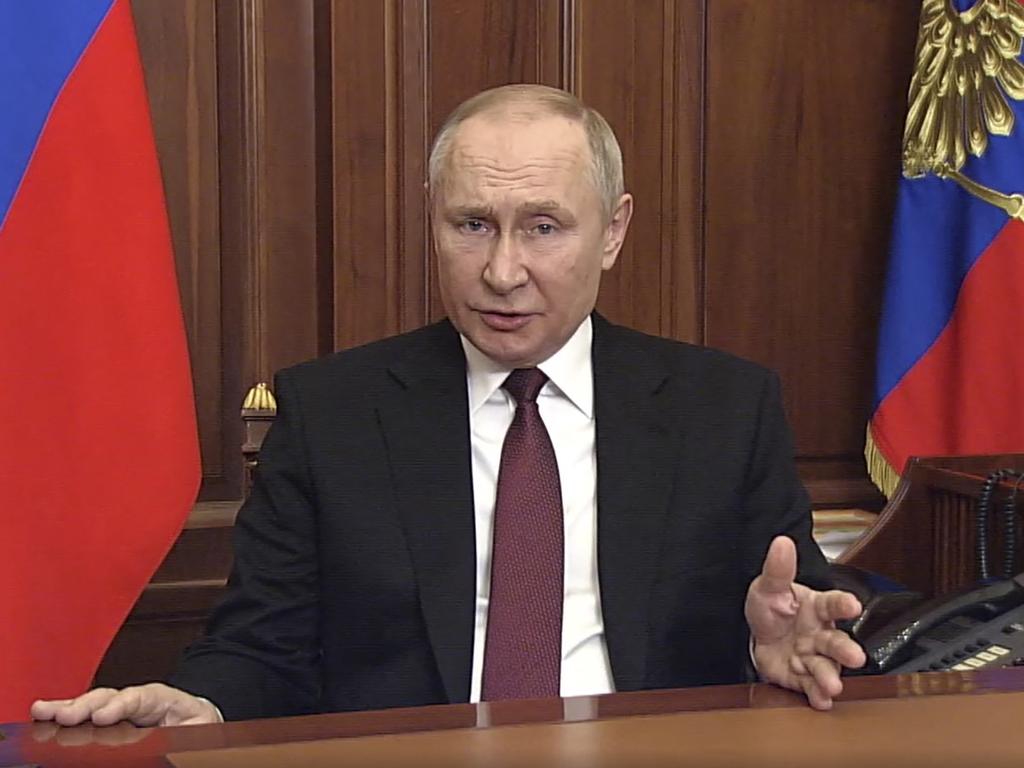If 2022 ends better than it began, that is first and foremost thanks to the Ukrainian people’s heroic resistance to Russia’s war of aggression. But as a new year dawns, the risks remain acute, both in terms of the conflict itself and of the broader geopolitical balance.
At the heart of the war’s first phase were the strategic errors Vladimir Putin made in launching his attack. As I argued on these pages shortly after the Russian invasion got under way, Putin’s decision bore all the hallmarks of the mistakes that characterise dictators’ wars of aggression – mistakes that are particularly acute in personalistic dictatorships; that is, political systems in which an autocratic ruler operates largely unchecked by institutional constraints.
Having surrounded themselves with yes-men, those rulers are unlikely to receive realistic assessments of the difficulties their plans will encounter. And the more brutal they are, the more improbable it is that their cronies will have the courage to speak truth to power, making dictators especially prone to confusing their desires for reality.
Thus, when Stalin ordered the preparation of plans for an attack on Finland in June 1939, he was adamant that the Finnish forces could be routed in 12 days, sacking Boris Shaposhnikov, the chief of the general staff, who argued that the invasion would face stiff resistance. Instead, Stalin accepted his toadies’ assurance that the Red Army would be “cheered on by happy Finns, yearning to be free from fascist oppression”.
Stalin soon learned, however, that the last thing the Finns wanted was reunification with Russia, from which they had only recently secured their independence. As Nikita Khrushchev revealed in his memoirs, the blood-soaked conflict cost the Soviet Union well over a quarter of a million casualties, severely damaging its ability to resist Nazi Germany’s onslaught in June 1941.
The same imperviousness to reality characterised Saddam Hussein’s decision in 1990 to invade Kuwait. Kuwait, Saddam claimed, was merely a fragment of “Greater Iraq”, which had been deprived of its oil-rich southern province by the Western colonialists. Considering himself the legitimate heir of both Nebuchadnezzar, the Babylonian leader who ruled Egypt and conquered Jerusalem, and Saladin, who recaptured Jerusalem from the Crusaders in the 12th century, Saddam portrayed Kuwait’s “reunification” with Iraq as his “historical mission”.
By then, Saddam had eliminated every critic from his inner circle, relying mainly on close relatives for advice. Knowing that disagreement usually meant death, they didn’t dare challenge his conviction that the US, which he thought was still smarting from its defeat in Vietnam, would not intervene on Kuwait’s behalf.
His war plans therefore simply ignored that contingency, leaving his army completely exposed when Operation Desert Storm obliterated Iraq’s war-fighting potential.
Putin not only repeated every one of those mistakes, underestimating both the internal resolve and external support on which Ukraine could draw; in his efforts to minimise the likelihood of a coup, he also weakened Russia’s striking force, fragmenting its military into myriad poorly co-ordinated structures, with some of the strongest units – such as his pretorian guard and the heavily militarised federal security service – falling outside the general staff’s chain of command.
Exactly as happened with Saddam’s forces in the Iran-Iraq war, the result of those coup-prevention techniques was to dramatically undermine the military’s capacity to carry out combined operations, squandering the invading force’s numerical advantage.
That those errors have been extremely costly is obvious. Nor have the consequences been limited to the conflict zone alone: as well as infusing NATO with new life, the West’s assertive response — and especially that of the US — has given China pause, leading to the recent slight, but not insignificant, de-escalation in its bellicose stance.
It would, however, be reckless to ignore the dangers that remain. Just as history highlights the traps into which dictators typically fall, it also suggests that they can adjust their strategy.
The essential feature of personalist regimes is that they endow a single individual with untrammelled decision-making authority. When failure on the battlefield convinces the autocrat that change is needed, little stands in the way. Military organisational adjustment can therefore be swift, as Stalin repeatedly showed in the course of World War II.
Just how far Putin will go in that respect remains to be seen, as does the effectiveness of any changes. There is, however, no evidence that he has abandoned the goal of capturing more terrain; and it is also clear that he is “Syrianising” the conflict, resorting to the scorched earth tactics Russia has deployed to horrifying effect in Syria. The pressure on Ukraine is therefore unlikely to abate.
At the same time, the conflict has demonstrated the continuing importance in battle of kinetic force – that is, of the sheer capacity to blow things up. The corollary of that role is the massive demand conventional warfare imposes on supplies of military materiel, ranging from relatively simple components such as bullets to the precision-guided artillery that has been decisive in repelling the Russian assault.
Unfortunately, the West’s inventories of materiel were already at very low levels when the fighting began and have been drastically depleted since.
Much as in World War II, the US has largely borne the burden of serving as the “arsenal of democracy”, to use the rallying cry Franklin Delano Roosevelt launched in his 1940 end-of-year radio broadcast, whose purpose was to prepare Americans for war. But the nature of contemporary materiel and a prolonged erosion in the West’s defence industrial base mean that there is no prospect of replicating the outcomes of Roosevelt’s wartime Victory Program, which – by mobilising what Roosevelt called “the genius of our people for mass-production” – allowed the US to produce more weapons each year than the world’s entire stock of armaments in 1940.
Rather, with inventories dwindling and production lagging, there is a real risk that the Ukrainian forces will suffer shortages of vital materiel, weakening their capacity to resist renewed Russian offences. Should those shortages – and the devastating strain the war is placing on Ukraine – lead to a substantial reversal in the balance of forces, the effects would be felt worldwide.
Nowhere would the reverberations be more consequential than in China. Xi Jinping doubtless realises that invading Taiwan involves immense, arguably incalculable, risks, both militarily and to the survival of China’s communist regime. But it is also apparent that, like Saddam, he regards suborning the island, and thus completing the Chinese revolution’s unfinished business, as his historic mission.
Additionally, it is a grim fact that each of China’s wars of aggression – from its involvement in the Korean war of 1950-53 through to the invasion of India in 1962, the recurrent attacks on Soviet troops at the Sino-Soviet border from 1966 to 1969, and the large-scale invasion of Vietnam in 1979 – has coincided with periods where the communist leadership was experiencing domestic crises and (in the words of the eminent historian Roderick MacFarquhar) used military adventures to “launch a patriotic campaign to solidify the people behind them and eliminate any remaining adversaries”.
As Xi navigates an economic slowdown and a deeply troubled exit from the pandemic, any sign that the West’s resolve is weakening could rekindle the temptation to strike. And it would also give added comfort to the world’s other dictators, including Iran’s embattled mullahs.
But the mullahs’ difficulties, as they step up the Islamic regime’s already savage repression, highlight one of the West’s greatest assets: the human desire to live in freedom. After all, when young Iranians risk death by chanting “Woman, life, freedom”, the liberty they are demanding is that of the much-maligned Western way of life. As a new year starts, defending that way of life – and helping the Ukrainians’ heroic efforts to defend it by defending their homeland – remains the only road to a just and durable peace.







